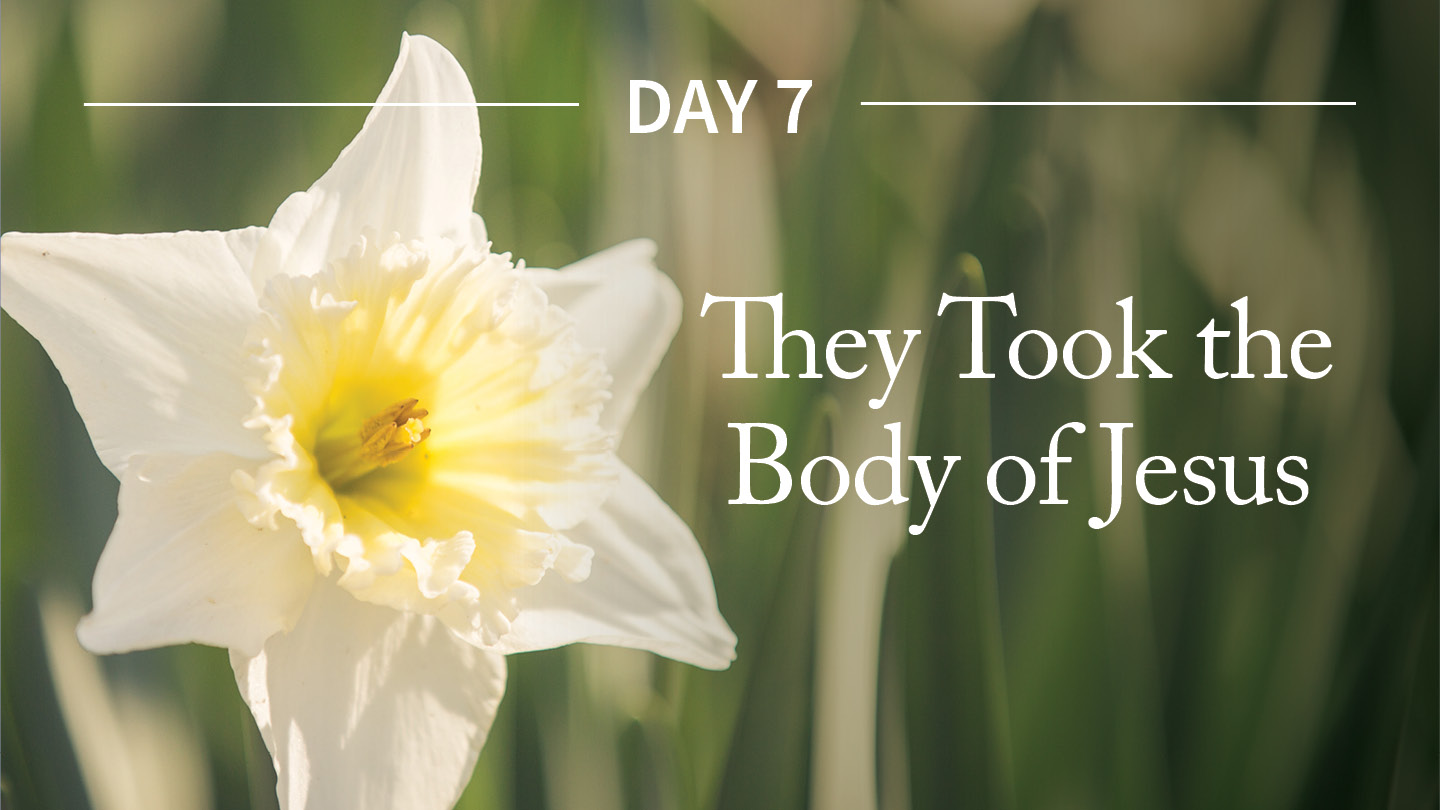We Have Seen the LordÀpẹrẹ


They Took the Body of Jesus
On the uncultivated, misty plains of creation, the first man lay a motionless figure, a breathless form, God’s likeness in shaped clay. This ʾādām, who had been master-crafted from the dust of the “ground” (ʾădāmāh), was inanimate, powerless, and totally at the disposal of the One who had set him there. In humanity’s most nascent state, if anything were to be done by anyone, it would be done by the Maker whose gift to the mud figurine was “the breath of life” (Genesis 2:7). But this gift was taken for granted, and a rebellion soon followed that resulted in God’s punitive promise to humanity: “You are dust, and to dust you shall return” (Genesis 3:19c).
For millennia “death reigned” (Rom. 5:14) all the way to Jesus who, though He was sinless and wholly God, was still every bit human and would not escape the scourge of the garden. So, like Adam, he died. Like Adam, his body lay powerless in the hands of its custodians (John 19:38-42). And like Adam, Jesus was set to return to the dust from whence humanity had come. In his helpless state as a man, if anything were to be done by anyone, it would not be by the “last Adam,” at least not yet. For now, others held authority over His body and had to give permission for its release; others had to move Him; others had to prepare Him for burial; and still, others had to close the tomb as the Son of Man was banished from life. What could now counteract the fateful promise of the Creator to Adam? What could keep this fellow human, the One True Human, from crumbling back into the earth like all others?—Only the latent “power of an indestructible life” (Hebrews 7:16)!
For humans today, the promise of dust still hangs ominously in the air—we have inherited the rebellious traits of our ancestor, Adam. But thanks be to “our Savior Christ Jesus, who abolished death and brought life and immortality to light through the gospel” (2 Timothy 1:10). This life is God’s gift to humanity that, once received, brings complete spiritual renewal, the indwelling presence of the Holy Spirit, and the promise of physical restoration one day. But to accept this gift, we must first relinquish our lives in powerless surrender to God, just as Christ offered up his life on the cross, placing it in the hands of the Father (Acts 2:27). So, the Apostle Paul wrote, “I have been crucified with Christ. It is no longer I who live, but Christ who lives in me. And the life I now live in the flesh I live by faith in the Son of God, who loved me and gave himself for me” (Galatians 2:20).
Prayer
You, O Lord, are the great Maker.
But we are made and will one day be unmade—
“Earth to earth, ashes to ashes, dust to dust.”
Yet You, O Lord, are the great Re-Maker,
So, we will one day be re-made and returned to Your presence,
Like Christ, through Christ, from mortal dust to eternal glory
Jordan W. Jones, Ph.D., serves as an assistant professor of Biblical Studies (Hebrew) for the Regent University School of Divinity.
Ìwé mímọ́
Nípa Ìpèsè yìí

"We Have Seen the Lord" explores the final week of Jesus’ pre-resurrection life as seen in the Gospel of John. This 8-day devotional starts on Palm Sunday and ends on Resurrection Sunday. Join the Regent University School of Divinity faculty as we may proclaim together with Mary Magdalene, "We Have Seen the Lord!"
More









